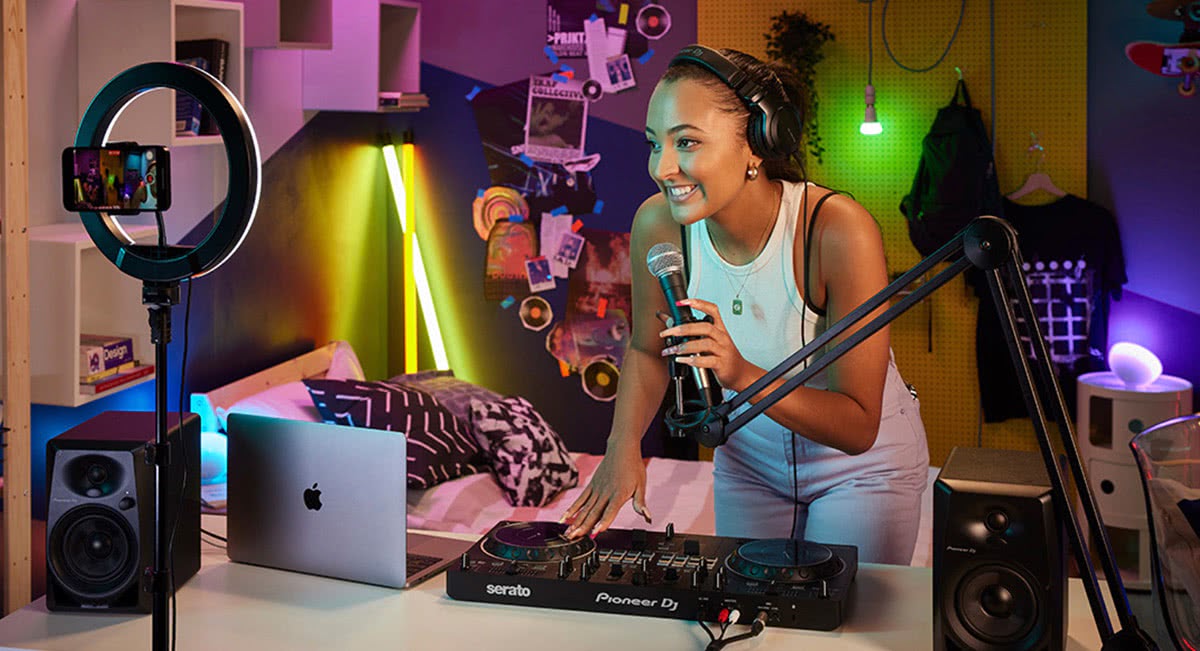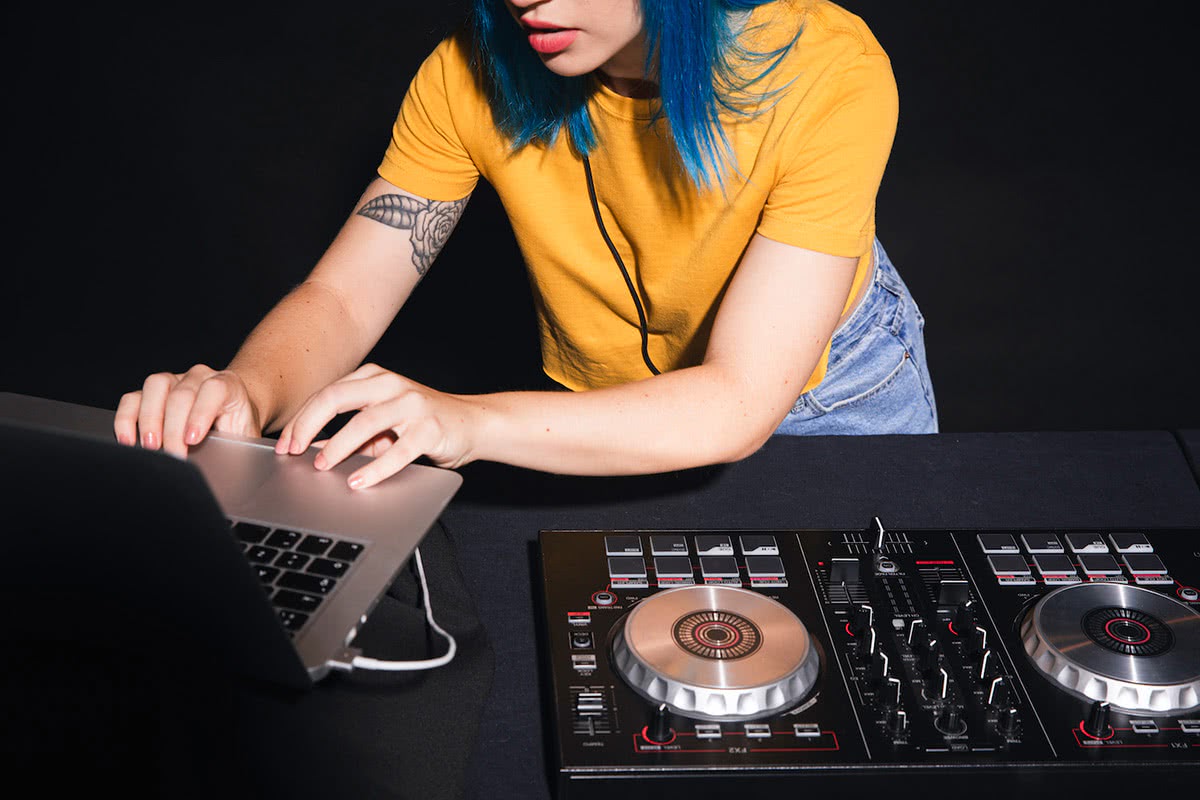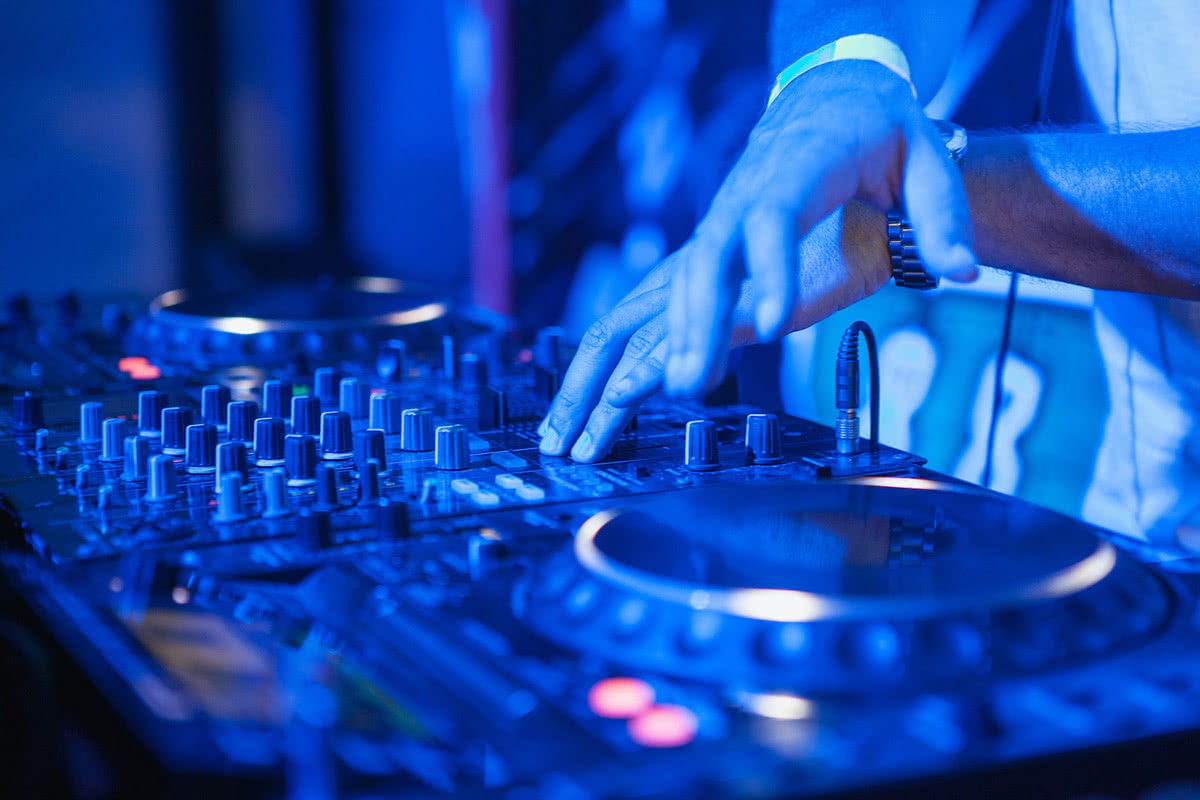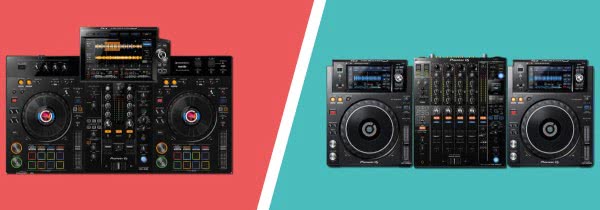As you browse for new DJ gear, one legitimate question that can come to your mind is whether you need the traditional DJ setup, namely the DJ Mixer and a pair of Media players such as CDJs or turntables, or can you get away with a controller.
We have already covered in a previous article the basics of most DJ setups, but this is still a question that gets raised a lot, so we will try to simplify it a little so that you can make the best possible decision. If you are not familiar with these setups, please read the article above first.
Before getting too technical and discussing the advantages and disadvantages of each setup, you should first ask yourself, what is your goal and purpose as a DJ:
- Are you trying it as a new hobby?
- Do you want to get into DJ-ing and throw some parties occasionally?
- Are you planning to run (or already run) a business, such as a wedding DJ?
- Do you want to open your own club or run your own festival/series of events?
Answering these questions will help you lay down the basics for the type of setup you need.

One thing that needs to be clarified from the start is that both setups serve the same purpose and neither of them is superior when it comes to learning to DJ or developing new skills. These can only be achieved with countless hours of “practice practice practice”. However each setup has its advantages in different situations.
Some of the main advantages of controllers are: price, variety, portability; while standalone setups offer: flexibility, comfort, and a more straightforward workflow.
Let’s talk about price first. There is no possible scenario where you can get a full standalone setup for the price of an entry-level controller. That being said, if you are just starting out, the controller can be the best bang for your buck (assuming you already have a computer, capable of handling the demands of DJ software), as you get all the standard DJ features like EQ knobs, volume faders and jog wheels. Now keep in mind that controllers can be cheap, but you have already paid a price for your media player which in this case is your computer, and while controllers do offer convenience, all the processing is still done on your computer. This can become a problem in two situations:
- Your computer doesn’t have enough processing power and RAM
- You do other things on your computer as well, such as work, gaming or web browsing

While generally it’s fine to keep a DJ software on a computer you use for other purposes as well, DJ software can be hard on your processor and RAM demands, and it can totally slow your computer down when you have several other demanding apps open at the same time. As you progress and start getting regular gigs, you should think of a way to separate all your other stuff from your DJ workflow, as they can have a negative impact on each other.
Controllers also come in great variety, they can be anything from a starter tool for beginner DJs, to a powerhouse for professionals. Some controllers come in more compact forms with only essential connectivity, while others have the same advanced components like professional club standard DJ mixers and players, and sound cards capable of handling huge soundsystems.
They can also be a great choice for DJs who are always on the road and have to bring their own equipment (such as wedding DJs). While a setup of a Denon DJ SC6000 Prime + Denon DJ X1850 mixer weighs a little over 18 kgs, plus the added weight of separate flightcases, a Denon DJ Prime 4 controller weighs just below 10 kgs, and you also have to carry around less cables.
Some controllers also have standalone capabilities (just like the Prime 4 mentioned above, or any XDJ series controller from Pioneer DJ). On any other DJ controller, you will have to rely on the software that’s included in the package (typically Rekordbox, Serato, Traktor or Virtual DJ). While each of these software has very advanced functionality, it is still software that you got to have installed on your computer in order to use your controller. Of course, this is not a problem if you are the only one who is using the controller, but as soon as you invite other DJs to play, most likely they will not like the idea of buying, installing and getting used to a certain DJ software to play their music (unless they use the same software).
An easy way to break it down is that a non-standalone controller can work great as long as you are the only one who uses it, but it can get problematic as soon as you start inviting others to DJ to your events. It can also become a problem if you get invited to DJ at a venue, and your workflow depends on your software and controller, as promoters don’t like to change the gear during an event. They will most likely leave you with some players like CDJs and maybe turntables, and the rest will be up to you.

This does not mean that you need to have a full standalone setup, but you should at least become familiar with the workflow of the more popular standalone units.
Many DJs however use standalone units even in their home setups, as they just don’t like all the hassle with the computer. Playing your tracks from a USB stick, or even from vinyl is very straightforward, and switches between DJs can be done seamlessly with this kind of setup.
Another benefit of standalone gear is that you can upgrade your mixer and players separately, and repair costs are likely less if something fails, as there is no need to send your entire setup to the service. You can use any kind of DJ mixer with any kind of DJ players, and you can always add turntables to your setup. For example, if you don’t like the workflow or the sound of Pioneer DJ mixers, you can always swap for an Allen&Heath, Denon DJ, Ecler, or any other brand. Speaking of turntables, in case you want to add them to your setup, than this is the way to go as almost every DJ mixer has phono inputs. If you want to hook up some turntables to a controller, make sure it has phono inputs on its mixer section. Some options for this would be anything from Pioneer DJ DDJ-800 and above, Denon DJ Prime 2 / Prime 4, Traktor Kontrol S4 MK3, Gemini SDJ-4000, Roland DJ 505 / 707M / 808.
If you want to run a venue, or a series of events with guest DJs, keep in mind, that most DJs will ask for Pioneer DJ players, and usually for Pioneer DJ or Allen&Heath mixers. Denon DJ also has very advanced gear, but Pioneer DJ has been around in clubs for the past 25 years, and this makes it the obvious choice for promoters, as they are very reliable and most DJs know their workflow.
Whatever your weapon of choice is, it is best if you get familiar with more kinds of setups, more types of software, and with gear from different manufacturers, this way you will make easier decisions in the future, and you will adapt much easier to any situation.

